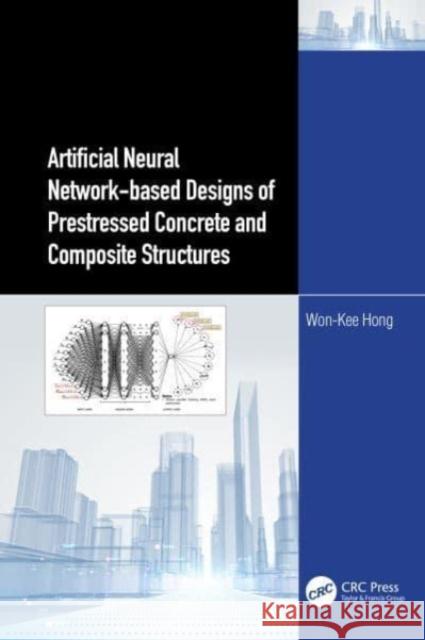Artificial Neural Network-based Designs of Prestressed Concrete and Composite Structures » książka
Artificial Neural Network-based Designs of Prestressed Concrete and Composite Structures
ISBN-13: 9781032408088 / Angielski / Twarda / 2023 / 432 str.
Artificial Neural Network-based Designs of Prestressed Concrete and Composite Structures
ISBN-13: 9781032408088 / Angielski / Twarda / 2023 / 432 str.
(netto: 831,06 VAT: 5%)
Najniższa cena z 30 dni: 780,79
ok. 16-18 dni roboczych.
Darmowa dostawa!
This book introduces artificial neural network-based Lagrange optimization techniques for a structural design of prestressed concrete structures based on Eurocode 2, and composite structures based on American Institute of Steel Construction and American Concrete Institute standards. The book provides robust design charts for prestressed concrete structures, which are challenging to achieve using conventional design methods. Using artificial neural network-based design charts, the holistic design of a post-tensioned beam is performed to optimize design targets (objective functions), while calculating 21 forward outputs, in arbitrary sequences, from 21 forward inputs. Applies the powerful tools of ANN to the optimization of prestressed concrete structures and composite structures including columns and beams Multi-objective optimizations (MOO) of prestressed concrete beams are performed using an ANN-based Lagrange algorithmOffers a Pareto frontier using an ANN-based multi-objective optimization (MOO) for composite beams and composite columns sustaining multi-biaxial loads Heavily illustrated in colour and with diverse practical design examples in line with EC2, ACI and ASTM codesThe book offers optimal solutions for structural designers and researchers, enabling readers to construct design charts to minimize their own design targets under various design requirements based on any design code.
This book introduces artificial neural network-based Lagrange optimization techniques for a structural design of prestressed concrete structures based on Eurocode 2, and composite structures based on American Institute of Steel Construction and American Concrete Institute standards.
The book provides robust design charts for prestressed concrete structures, which are challenging to achieve using conventional design methods. Using artificial neural network-based design charts, the holistic design of a post-tensioned beam is performed to optimize design targets (objective functions), while calculating 21 forward outputs, in arbitrary sequences, from 21 forward inputs.
- Applies the powerful tools of ANN to the optimization of prestressed concrete structures and composite structures including columns and beams
- Multi-objective optimizations (MOO) of prestressed concrete beams are performed using an ANN-based Lagrange algorithm
- Offers a Pareto frontier using an ANN-based multi-objective optimization (MOO) for composite beams and composite columns sustaining multi-biaxial loads
- Heavily illustrated in colour and with diverse practical design examples in line with EC2, ACI and ASTM codes
The book offers optimal solutions for structural designers and researchers, enabling readers to construct design charts to minimize their own design targets under various design requirements based on any design code.











